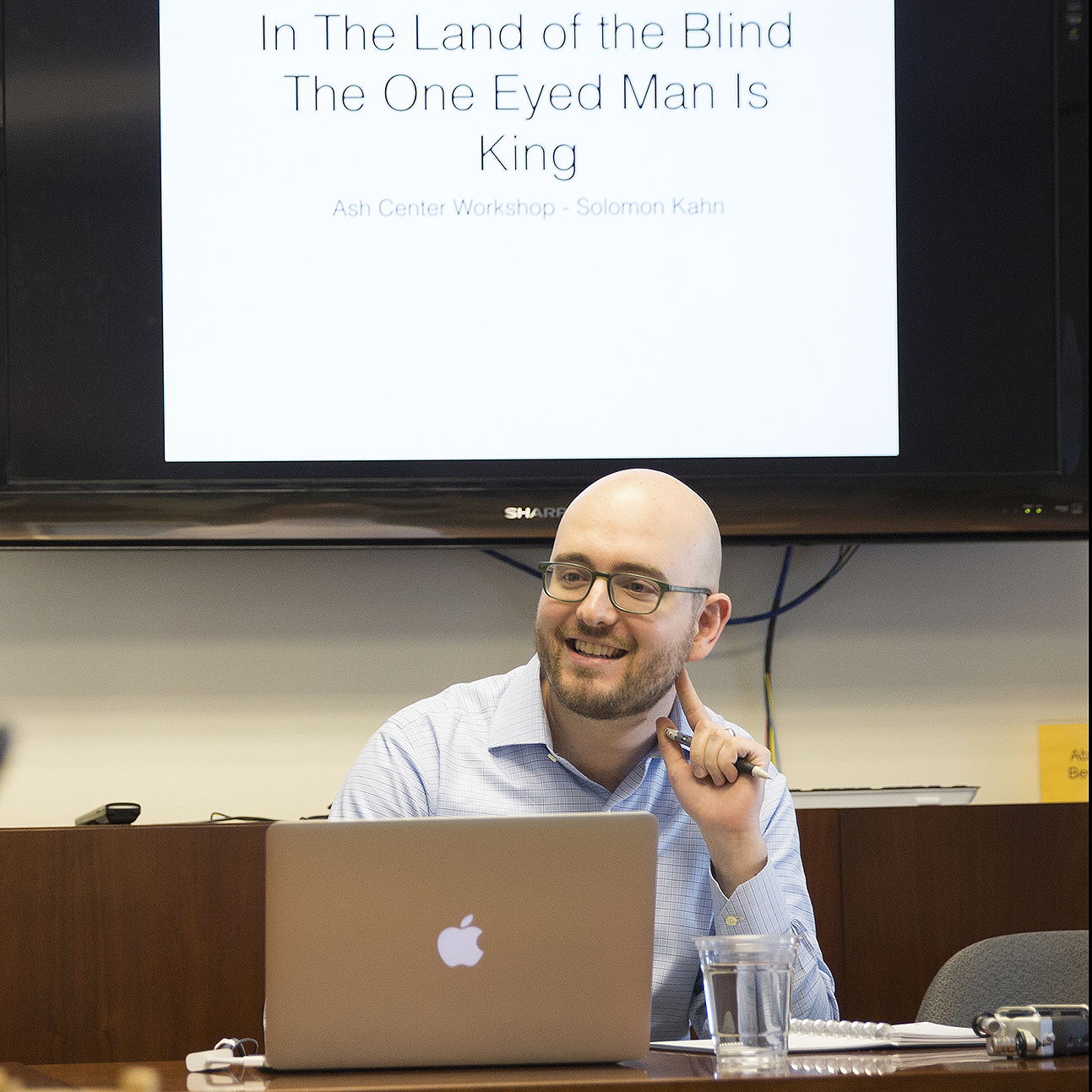Q+A
Visualizing Democracy
Ash Center Technology and Democracy Fellow Soloman Kahn discusses data, transparency, and solving our democratic deficit.

Q: Tell us about your professional background and the work you do outside of the Ash Technology and Democracy Fellowship Program.
A: Professionally, I have the skills of a data person, developer, and entrepreneur. In my day job, I apply those skills working at Bionic— a company that helps the world’s largest companies start portfolios of new businesses. At night and on the side, I take my skills and use them to make the world a better place and contribute to civic work.
Q: What sorts of civic tech projects are you working on now?
A: My goal is to tackle subjects that generate a lot of interest, but are poorly understood, and subjects where there is data available to make the issue more easily understood. For example, I built a data visualization of the U.S. budget because everyone should care about how our government spends taxpayer money. It doesn’t matter if you think it spends too much or too little, pretty much no one knows what the government actually spends it on. I built a tool that allows people to easily view the data and come to their own conclusions.
This summer, I launched a web-based visualization system for federal campaign finance data called Explore Campaign Finance. It allows citizens to look at any politician that has run for federal office in the last 25 years and know exactly how much money they’ve raised and the source of their campaign funds. Users can independently analyze contributions and submit their findings through the website. By crowd-sourcing research on these politicians, it becomes not just a tool, but also a vessel for change. If a user discovers an “interesting” campaign contribution, then s/he can submit it and we’ll display it on the site. Submissions will then be aggregated into a feed and sent off to journalists.
Q: What fundamental challenges to our democracy do you wish more people were thinking about or working to develop solutions?
A: Campaign finance is a big one. I think we need to seriously rethink the way elections are funded in this country— that’s why I’m working on this project.
Also, I think everyday citizens often feel disconnected from civic life because it can feel too difficult to plug in, do a little bit of work, and have an impact. One of the coolest things about the campaign finance project is that it enables citizens to easily engage. If you have a free hour, cool, find a politician, do some research on where they raised money. You might find something really compelling that no one has seen before and you can get that in front of journalists. I don’t know many other projects that give people that kind of opportunity.
Q: How do you balance the demands of your day job with your civic data projects such as Explore Campaign Finance?
A: Working on projects where I have tight time constraints has pushed me to make careful strategic decisions, which in turn helps to maximize my impact. I have a baby at home, I have a family, and I have a full-time job. I’ve worked it out so that even if I only have a couple hours each week to spend developing civic data visualization tools, I still make progress.
Q: How has your Ash Center fellowship strengthened your civic tech work?
A: I think that by bringing together professionals working in industry and nonprofits with people on the cutting edge of academia there is the potential for us to teach each other, learn a lot of things, and really improve the work that we’re doing.
Solomon Kahn is an Entrepreneur and Data Scientist at Bionic Solution, and works on civic data projects on the side. He has built open source visualization systems for the US Budget, as well as for campaign finance data. He was previously a Network Fellow at the Harvard University Safra Center for Ethics, and is a graduate of Columbia University. Solomon lives in New York with his wife Kelly and son Jacob.
You can find Solomon on Twitter @SolomonKahn
This interview has been edited for clarity and length.